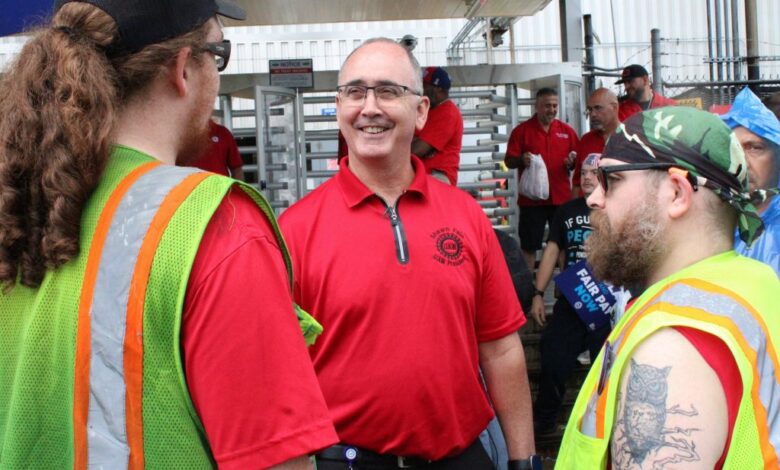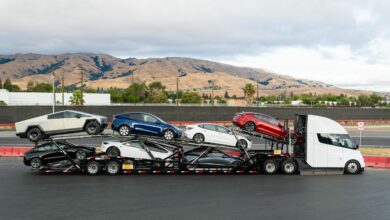
UAW vs. Tesla: Labor Costs, CEO Ambitions, and EV Accessibility Take Center Stage
Exploring the Heated Debate Surrounding Labor Costs, Elon Musk, and Tesla's Accessibility Amidst Auto Industry Turmoil
In a recent episode of CBS’ Face the Nation, the ongoing strike affecting automotive giants Ford, General Motors (GM), and Stellantis took center stage as United Auto Workers (UAW) President Shawn Fain and Democratic Rep. Debbie Dingell of Michigan discussed the situation. Surprisingly, Tesla found itself part of the conversation, and it became evident that not all parties were on the same page when it came to the electric vehicle (EV) powerhouse.
Tesla, known for its non-unionized labor force, seemed unfazed by the UAW’s ongoing strike, as its production plants continued to operate smoothly. Industry analysts couldn’t help but observe that Tesla might emerge as the unexpected victor in the UAW’s labor negotiations. Ford, on the other hand, openly voiced concerns about the UAW’s demands, which, if met, would more than double its labor costs. These costs were already higher than those incurred by Tesla, Toyota, and other automakers that have chosen to forgo union labor.
In response to these sentiments, Shawn Fain, the UAW president, made a compelling argument. He noted that labor costs, a point of contention in these discussions, account for only about 5 percent of a vehicle’s total cost. Fain challenged the idea that raising wages would necessarily lead to higher car prices, stating, “They could double our wages and not raise the price of the vehicles and still make billions in profits. It’s a choice. And the fact that they want to compare it to how pitiful Tesla pays their workers and how other companies pay their workers, that’s what this whole argument’s about.”
Fain went further, criticizing CEOs like Elon Musk, suggesting that they prioritize personal ambitions over the well-being of their workers. He stated, “Most of these workers in those companies are scraping to get by so that greedy CEOs and people like Elon Musk can build more rocket ships and shoot themselves into outer space. And that’s unacceptable.”
Rep. Debbie Dingell, weighing in on the discussion, also pointed out disparities in Tesla’s employee compensation. She argued that Tesla vehicles remain financially out of reach for a significant portion of the American population, including many corporate executives.
“Tesla does have a huge discrepancy in what they’re paying their employees,” Dingell observed. “And most people in this country can’t afford a Tesla. Even a lot of executives can’t afford to buy a Tesla.”
To put things in perspective, data from Kelley Blue Book reveals that the average cost of a new car as of March 2023 stands at $48,008. Tesla’s most affordable model, the Model 3 sedan, begins at $40,240 before considering incentives, which falls below the national average. Similarly, the Model Y, Tesla’s best-selling crossover, starts at $50,490 before incentives, aligning closely with the average U.S. car price. Furthermore, both the Model 3 and Model Y qualify for a $7,500 federal tax credit for eligible buyers, making them even more accessible to a broader range of consumers.



